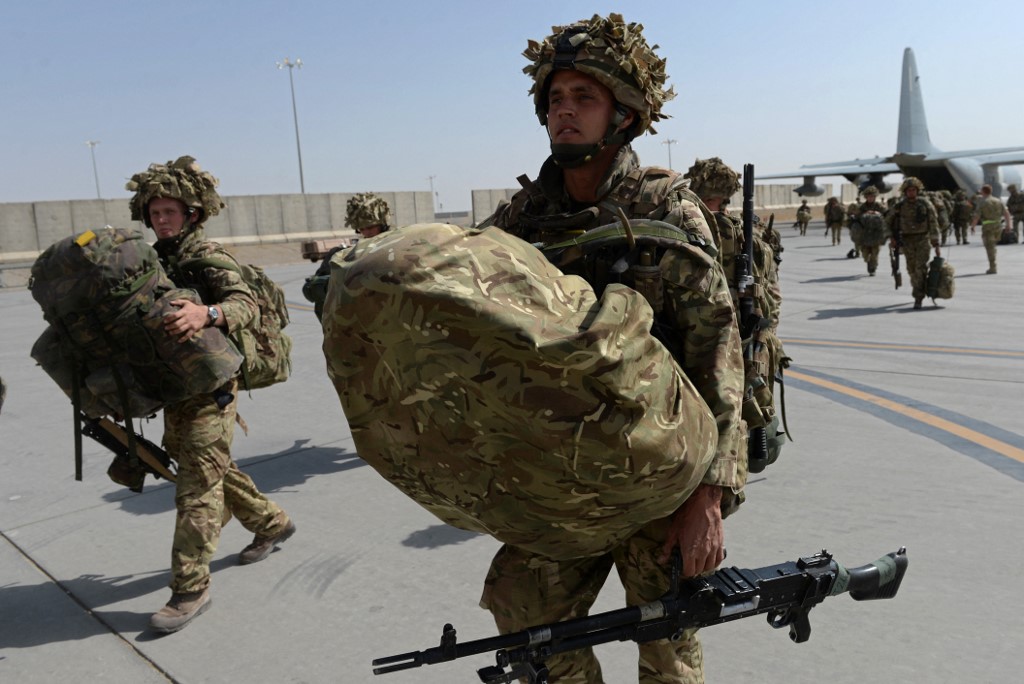LONDON: An Afghan man who served as an interpreter with British forces has said he feels “betrayed” after the UK refused to grant his wife entry to the country.
Hafizullah Husseinkhel, 31, left Afghanistan in 2014 after serving in Helmand province, where his conduct was commended and he was described as a “crucial member of the team.”
His wife, mother and father remained behind after he received death threats from the Taliban. While his father passed away in June of last year, the UK Ministry of Defence indicated in October 2021 that his wife and mother could be eligible to join Husseinkhel in Britain under the Afghan Relocation Assistance Programme, set up after the Taliban takeover of their homeland in August.
They have been living in a hotel in the Pakistani capital of Islamabad at the expense of the British High Commission since January, and their residency permits have since expired.
Their relocation to the UK, though, is now in doubt, after the UK Home Office indicated that having received an application from his 25-year-old wife for asylum on the grounds of family reunion, it did not believe their relationship to be “genuine and subsisting.”
Husseinkhel’s wife is also not being considered for an ARAP place by the Home Office, despite being accepted by the MoD, while his mother’s application is currently pending.
He now fears they will be deported back to Afghanistan, where they will face persecution and death for having fled and given his previous work with the UK.
Husseinkhel told The Independent newspaper: “They will be killed straight away because they will be treated as spies, because everyone knows they’ve been in the hotel because of my job. They will be easy targets for the Taliban.
“I was told they’re eligible to come here. I’m in shock. How can the Home Office do this? I served the British forces, I saved lives, and today what are they going to do with my family? No one cares about them. I feel betrayed and terrified for their safety.”
Husseinkhel’s barrister, Celia Record, told the paper this was not the only such case of families being left separated by the British government.
“There’s this backlog of people — we’re talking mainly women — who are waiting in Pakistan without their UK visas and with their leave to remain in the country having expired, and they’re in despair. It’s just not right,” she said.
“[His wife] is his next of kin. Why shouldn’t she come here? I don’t understand why a former interpreter can’t have his next of kin in the UK.”
Husseinkhel received high praise for his work with the British Army in Helmand, receiving a commendation “in recognition of his outstanding contribution as an interpreter for the Formation Reconnaissance Squadron during Operation HERRICK 14 Apr – Nov 2011.”
Former British Army Officer Peter Gordon-Finlayson, who served with Husseinkhel in Helmand, told The Independent: “Hafiz served with British troops on consecutive Herrick campaigns, keeping him away from his family for years. He was an integral and crucial member of the team.
“Following the death of several of his family members, his wife is one of the few pillars of support he has left. To deny them the ability to be together seems particularly cruel on the UK’s part and is having a noticeable impact on his mental health.”
A Home Office spokesperson told The Independent: “We do not routinely comment on individual cases. During Operation Pitting we evacuated 15,000 people from Kabul and we continue to do all we can to secure safe passage and enable British nationals and eligible Afghans to leave the country.”




